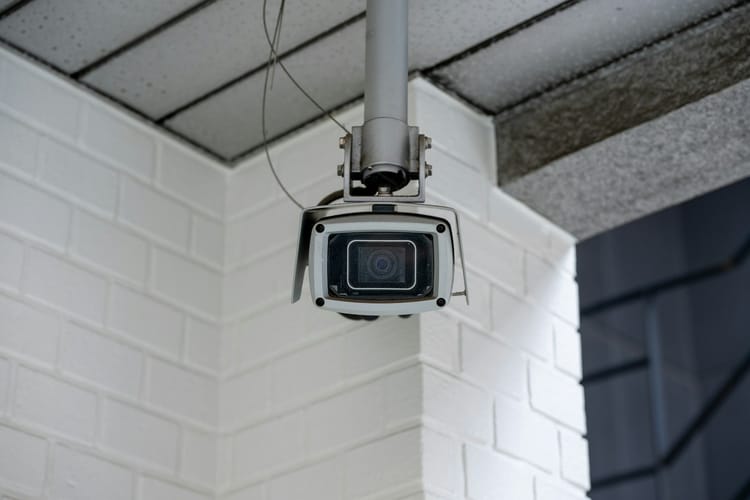Mexico City under surveillance, UK Directors face new ID-Verification rules & more

From universities and governments to businesses and social platforms, the digital world is facing a reckoning. A wave of cyber incidents and regulatory crackdowns highlights the tension between security, transparency, and privacy. Even as former Meta executives fight back against online scams, one truth emerges: the battle for digital trust is only just beginning.
Countdown to Compliance: UK Directors Face New Identity Verification Rules
With just over two weeks remaining before Companies House enforces its new digital identity verification rules on November 18, millions of UK company directors and Persons of Significant Control (PSCs) must act quickly to avoid penalties and disruption. Under the new regulations, all directors must verify their identity either directly with Companies House or via an Authorised Corporate Service Provider (ACSP). Failure to comply could result in rejected filings, financial fines, and even disqualification. Although existing directors have a 12-month transition period, they won’t be able to submit annual confirmation statements until verified. The rules aim to boost corporate transparency and combat fraud, marking a major step in the government’s push to strengthen economic crime prevention.
ACSPs, such as accountants and solicitors, face the challenge of handling a surge in identity checks while staying compliant with anti-money laundering (AML) regulations. Manual verification remains an option but risks creating costly backlogs and errors once the deadline hits. As a result, demand for certified digital identity verification (IDV) solutions is expected to soar. Experts recommend platforms that integrate facial biometrics, NFC passport scanning, and sanctions list checks, allowing firms to streamline both IDV and AML compliance. The message is clear: those who adopt secure, scalable digital tools now will navigate the November deadline smoothly while others risk being left behind in the new era of corporate identity oversight.
Mexico City Tops the Americas in Surveillance, but Crime Persists
Mexico City has become the most heavily video-surveilled metropolis in the Americas, with more than 83,000 government cameras monitoring its streets surpassing even New York City’s 71,000. These cameras, part of the city’s C5 security network, capture the movements of millions of residents daily in one of the world’s largest urban centers. Authorities tout the system as a critical tool for deterring and solving crimes, but despite the vast surveillance web, crime rates across the city remain stubbornly high, raising questions about its actual effectiveness.
Beyond its limited impact on public safety, the massive surveillance effort is sparking growing ethical and privacy concerns. Critics argue that the sheer scale of monitoring threatens civil liberties and enables government overreach, particularly in a country with a complex history of political corruption and weak accountability. As Mexico City leans further into digital policing, it faces a difficult balance between public security and personal privacy forcing residents to question whether living under constant watch truly makes them any safer.
Ex-Meta Execs Launch Nonprofit to battle Social Media Scams
Two former Meta executives, Rob Leathern and Rob Goldman, are taking on one of social media’s biggest problems: scam ads. The pair have launched a new nonprofit dedicated to exposing and curbing the flood of fraudulent advertisements that plague platforms like Facebook and Instagram. These scams often use fake celebrity endorsements and deceptive claims to lure users into financial traps. This is a problem that has grown increasingly rampant as social media companies struggle with transparency and oversight. Leathern, who once worked on Meta’s ad integrity team, witnessed firsthand how easily fraudsters exploited the system, including during high-profile cases like the 2019 lawsuit by Dutch producer John de Mol, who accused Facebook of enabling ads using his likeness.
Their nonprofit aims to shine a light on the opaque world of online advertising, where misleading content can reach millions before being detected or removed. By promoting data transparency and accountability, Leathern and Goldman hope to build public awareness and push for systemic change in how ad platforms operate. As social media companies face mounting criticism for prioritizing profit over user protection, the duo’s initiative represents a timely effort to clean up a digital ecosystem increasingly overrun by deception.
1.2 Million Records Exposed in Politically Charged Cyberattack
The University of Pennsylvania has confirmed a massive data breach that compromised personal details of 1.2 million students, alumni, donors, and staff. The attack, allegedly carried out by a politically motivated hacktivist, exposed decades-old records containing banking and demographic data, though medical information was reportedly untouched. The hacker used a compromised single sign-on (SSO) account to infiltrate UPenn’s systems, including Salesforce, SAP, and SharePoint, before sending a provocative email through official university channels. The message accused UPenn of “terrible security practices” and ideological bias in admissions. Experts have warned that the stolen data (linking donor histories, net worth, and sensitive demographic details) could fuel sophisticated phishing and identity theft campaigns.
The breach comes amid mounting political tension between Ivy League institutions and the Trump administration, which has accused universities of progressive bias and insufficient action against antisemitism. Similar politically driven hacks recently targeted Columbia and New York University, both accused of race-based admissions. UPenn has enlisted federal authorities and cybersecurity experts to investigate, taken affected systems offline, and begun notifying impacted individuals. Still, the university faces a class-action lawsuit alleging negligence despite its vast resources. The incident underscores the risks of compromised SSO credentials, which can grant sweeping access across interconnected systems and turning a single weak link into a university-wide crisis.
Canada on Cyber Alert: Hacktivists Target Nation’s Critical Infrastructure Through Exposed ICS Devices
The Canadian Centre for Cyber Security (CCCS) has issued a stark warning after a wave of hacktivist attacks on critical infrastructure, including water, oil and gas, and agricultural systems. Recent incidents involved tampering with water pressure at a treatment plant, triggering false alarms at an oil facility, and altering environmental controls at a grain silo (actions that risked safety and service disruption). According to the CCCS, these attacks were likely opportunistic rather than highly sophisticated, but they highlight how exposed industrial control systems (ICS) remain dangerously vulnerable. Experts warn that the breaches demonstrate how weak access controls and internet-facing devices can easily become entry points for malicious actors seeking publicity and to tarnish Canada’s global reputation.
To counter the growing threat, the Cyber Centre is urging all critical infrastructure operators to disconnect internet-exposed ICS devices, enforce strong multi-factor authentication, and enhance monitoring through intrusion prevention and vulnerability management tools. It also recommends that organizations conduct regular incident response exercises and adhere to vendor security protocols throughout each device’s lifecycle. While the CCCS emphasized that most recent attacks came from hacktivists rather than nation-state actors, it cautioned that the same weaknesses could be exploited by more sophisticated adversaries. The alert serves as a wake-up call for Canada’s essential services sector to close cybersecurity gaps before opportunistic intrusions turn into catastrophic failures.




